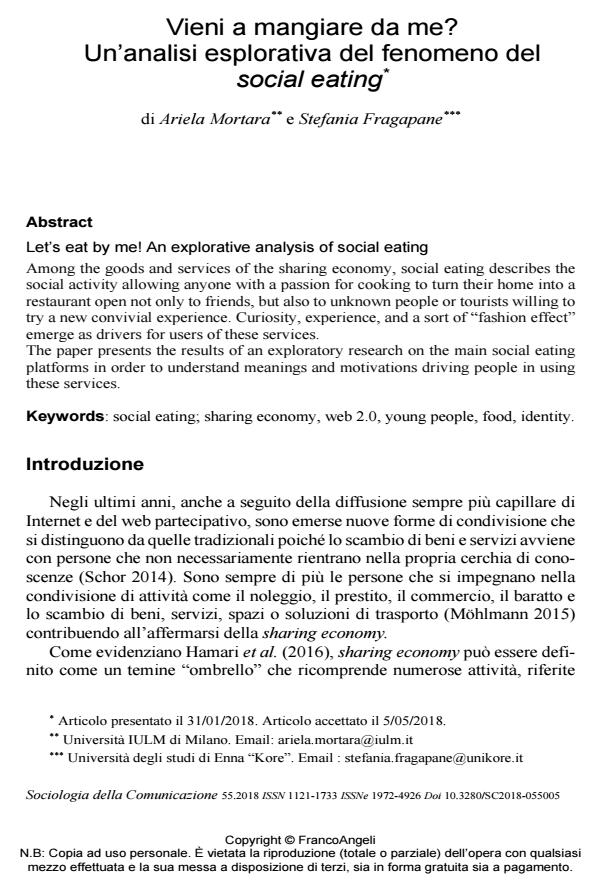Let’s eat by me! An explorative analysis of social eating
Journal title SOCIOLOGIA DELLA COMUNICAZIONE
Author/s Ariela Mortara, Stefania Fragapane
Publishing Year 2018 Issue 2018/55
Language Italian Pages 16 P. 71-86 File size 232 KB
DOI 10.3280/SC2018-055005
DOI is like a bar code for intellectual property: to have more infomation
click here
Below, you can see the article first page
If you want to buy this article in PDF format, you can do it, following the instructions to buy download credits

FrancoAngeli is member of Publishers International Linking Association, Inc (PILA), a not-for-profit association which run the CrossRef service enabling links to and from online scholarly content.
Among the goods and services of the sharing economy, social eating describes the social activity allowing anyone with a passion for cooking to turn their home into a restaurant open not only to friends, but also to unknown people or tourists willing to try a new convivial experience. Curiosity, experience, and a sort of "fashion ef-fect" emerge as drivers for users of these services. The paper presents the results of an exploratory research on the main social eating platforms in order to understand meanings and motivations driving people in using these services.
Keywords: Social eating; sharing economy, web 2.0, young people, food, identity.
- Food Sharing Alessandra Pellerito, Ralf Dounz-Weigt, Maria Micali, pp.1 (ISBN:978-3-030-27663-8)
- The social practices of hosting P2P social dining events: insights for sustainable tourism Anna Davies, Agnese Cretella, Ferne Edwards, Brigida Marovelli, in Journal of Sustainable Tourism /2022 pp.1004
DOI: 10.1080/09669582.2020.1838526
Ariela Mortara, Stefania Fragapane, Vieni a mangiare da me? Un’analisi esplorativa del fenomeno del social eating in "SOCIOLOGIA DELLA COMUNICAZIONE " 55/2018, pp 71-86, DOI: 10.3280/SC2018-055005